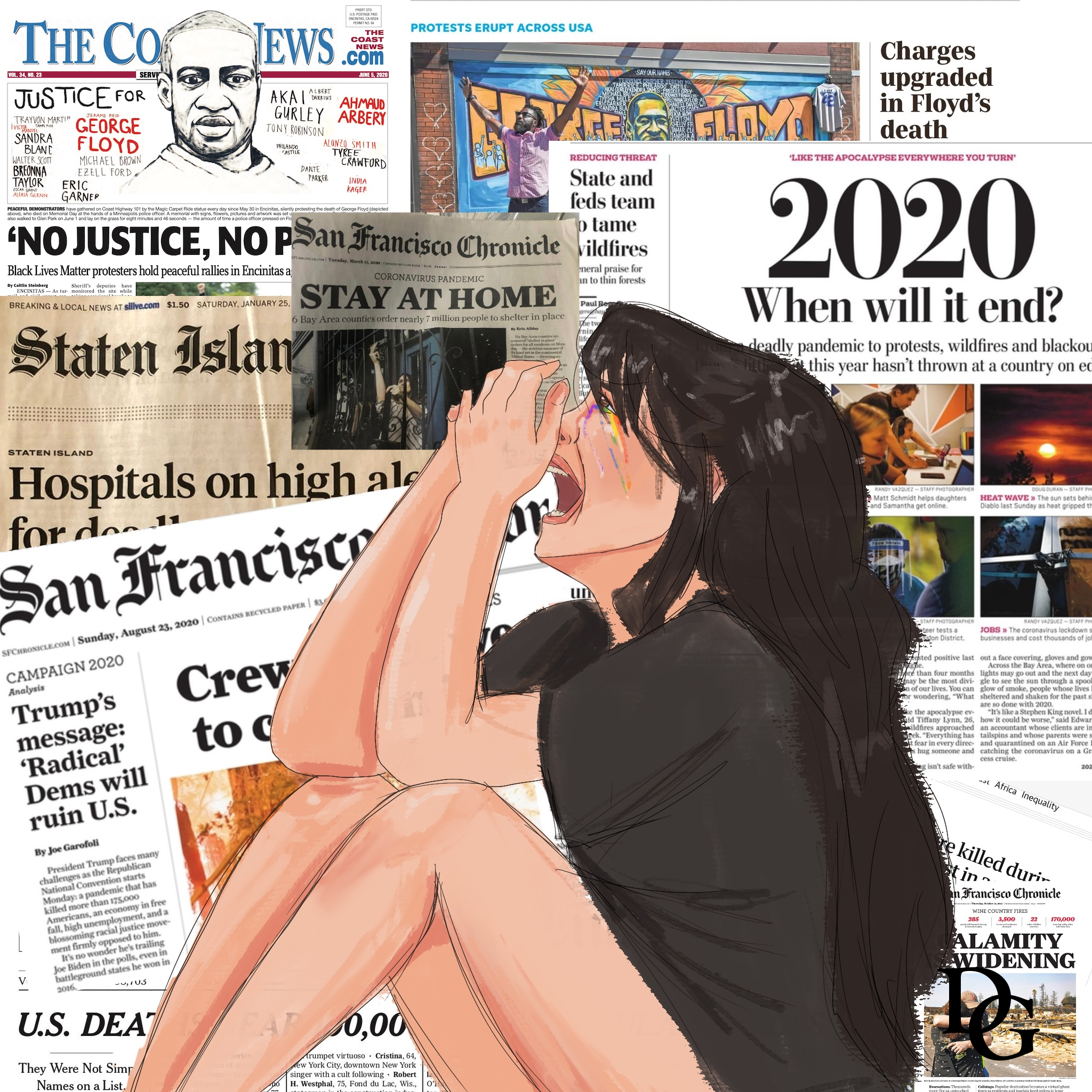The traffic has come to a screeching halt, as it so often does during heatwaves. Portland is a city that doesn’t like extremes; if it got too cold, the city would shut down beneath the 2” blanket of snow. If it got too hot, like today, the tunnel to Hwy 26 would back up all the way to the 217 exit.
Of course, I was grateful to be stuck in traffic— given just two years ago the road was much emptier as Portland faced a different extreme that would grind us to a halt. Perhaps Oregon wasn’t the worst state to be stuck in during a global pandemic. Especially compared to some of the other states I heard about on the news. I was grateful our lawmakers and state representatives had taken the virus seriously and prioritized worker safety when it mattered most. In some states, martyrs people were not given the same luxury.
In the beginning of the pandemic, back when the common belief was that in 2-3 weeks “this whole thing would be over”, I was actually relieved to have an extended spring break. The previous terms had been hard as I struggled to adjust to my new college environment. But the relief would be replaced with longing. I couldn’t stay at home for very long, as family tension (exacerbated by the pandemic) forced me to find housing elsewhere. I was alone, barring my cat, in an apartment 200 miles away from my loved ones. The independence that had once tasted so sweet, was now soured by anxiety and depression.
So, I began to walk. First, just around the neighborhood. Then, I started walking a little further with no real destination in mind. Walking gave me a space to check in with my feelings and talk to myself. In each step, I could feel my fears coming to the surface. What if something happens to my parents? Will I get through this next school year? How do I fight this loneliness? I’m scared. Walking through the wooded hills of West Eugene, I tried to find normalcy in the small things. Like the neighborhood cats that would meow at me from their perch on the front lawn— as though they too knew to keep a distance. I tried not to let my eyes settle for too long on the empty playgrounds or shuttered businesses.
A lot of the pandemic can be measured in loss. For the longest, loss was the only way for me to mark the passage of time. Oh, this is when I would’ve been travelling for my honor society convention. Today is graduation week— is there a graduation? I would’ve started work today. When I was walking, I could see my progress. Everyday, the walk would get a little longer until I was walking 3-5 miles daily. Walking was the only control I had over my life at this time and I savored every mile.
Today, sitting in the hot, June traffic, I am grateful to have a destination to attend in the first place. I no longer measure my life through absence but rather I look for the parts that keep my heart full. I am grateful to be surrounded by my friends and family and that they survived the COVID pandemic. I am grateful that I successfully finished school and was able to return to Portland. While I no longer walk miles and miles everyday, I’ve retained the practice of checking in with myself and taking stock of my feelings. I’m scared sometimes but it’s okay. And the traffic begins to ease.
